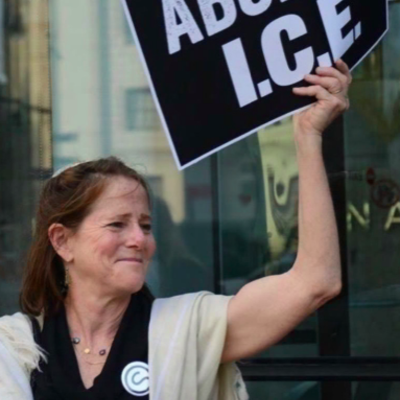For the past several years, I have had the honor of serving as High Holiday Cantor at B’nai Israel, a Conservative synagogue in In Gainesville, Florida. While Gainesville — home to the University of Florida — is an island of sanity within Florida, the consequences of Florida education policy are everywhere. The Governor of Florida calls his state “where ‘woke’ goes to die.” Some university faculty who are also congregants admit they have adjusted their curricula because of the state’s rules limiting discussion of sex, gender, and family identity. And this fall, Prager “University” won a contract to provide a “supplemental curriculum” for K-12 education. It’s a series of animated videos featuring “Leo” and “Leyla,” two white kids who travel back in time to learn about history. Meeting figures like Columbus or Frederick Douglass, they learn that the conquest of the Americas was a benevolent project and that slavery was “a compromise to achieve something great.”
Our parshah has something to say about the misuse of history and tradition. The second half of Genesis 9 recounts how after the flood, Noah planted a vineyard, drank wine, and fell asleep in his tent. While asleep, his middle son Ham, “the father of Canaan, saw the nakedness of his father and told his brothers outside.” (9:22) When Noah awoke and learned what his son had done,“ he said, ‘Cursed be Canaan; a servant of servants shall he be unto his brethren.’” (9:25)
As a biblical scholar as well as a rabbi, I am confident that the episode provides, and was meant to provide, a prooftext for Israelite opposition to the Canaanites and Israel’s right to the land of Canaan. Multiple times in the Torah, the Canaanites are described as an abomination. They are a people that the land “vomited out”; their practices are an anathema, iconic examples of everything the Israelites must not do. (Leviticus 18:27-28) As Stephen Geller has argued, the story of Dina’s rape by Shechem is a mythic precedent for the biblical attitude toward the Canaanites as over-sexed, violent, and ungovernable. (“The Rape of Dina: Transcendence and Sexuality,” in S. Geller, Sacred Enigmas: Literary Religion in the Hebrew Bible (Fortress: 1996).) The episode in our parshah can be seen as yet another prooftext for Israelite opposition to the Canaanites. So how did Noah’s curse become known as “the Curse of Ham”?
Ham, we are told in Genesis 10:6-8, is the father not only of Canaan, but of Cush, Egypt, and Put. From Cush descend Sheba, Havilah, Sabtah and Raamah, regions associated with sub-Saharan Africa, in particular Ethiopia (Cush). Beginning in the 16th century European Christians began associating Ham with Blackness and Blackness with enslavement. In other words, a social construction of race was derived from a legend more likely meant to justify Israel’s right to the land of Canaan. And not just European Christians, but as David Goldenberg demonstrates in his book, The Curse of Ham: Race and Slavery in Early Judaism, Christianity and Islam, a “notion of black inferiority [on the part of non-black people] developed…as black people were enslaved across cultures.” A racially-based interpretation of Genesis 10 supported that view.
As both heirs to and stewards of the biblical tradition, it is on us to use our tradition responsibly, and to challenge its misuse, whether that be in the service of racism and racist institutions, homophobic policies and legislation, nationalistic aspirations, or exclusive claims to land. The biblical tradition has been exploited for unjust purposes by Jews as well as Christians. Sometimes this has been on the basis of a misguided interpretation, but at other times it has involved taking literally what is a theological rendering of Israelite history. At a time when the consequences of failing to face history responsibly — to teach the past, warts and all — are so high, we must be vigilant about how we use our texts and call out their misuse wherever we find it.
Rabbi Dr. Barat Ellman earned her Ph.D. from JTS in 2011 where she was also ordained in 2004. Today, she is an adjunct professor in the Theology Department at Fordham University. She is also a non-denominational activist rabbi whose pulpit is “in the streets,” where she fights for the transformation of the criminal legal system, the rights of immigrants and refugees, and for a truly anti-racist society.


